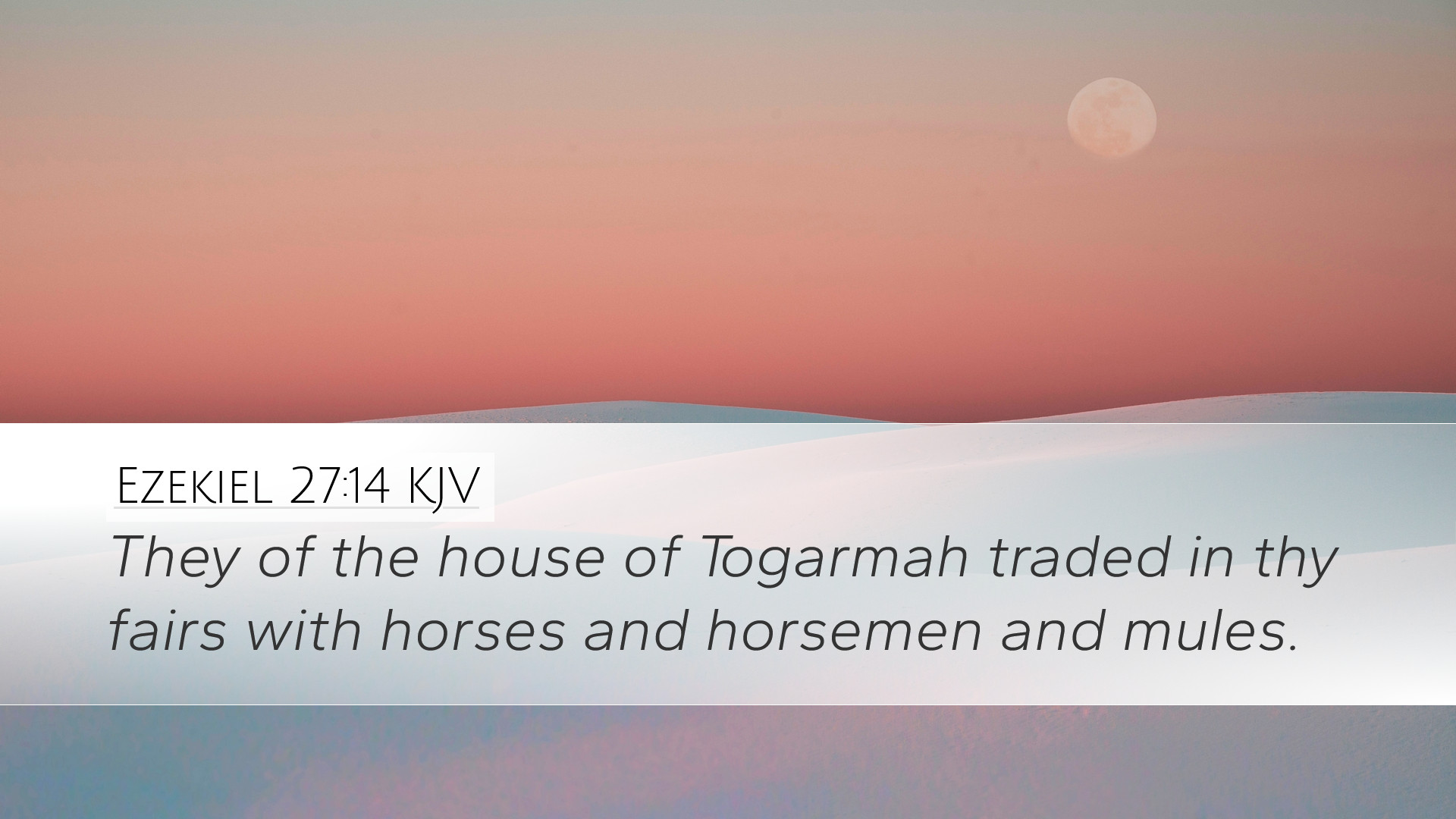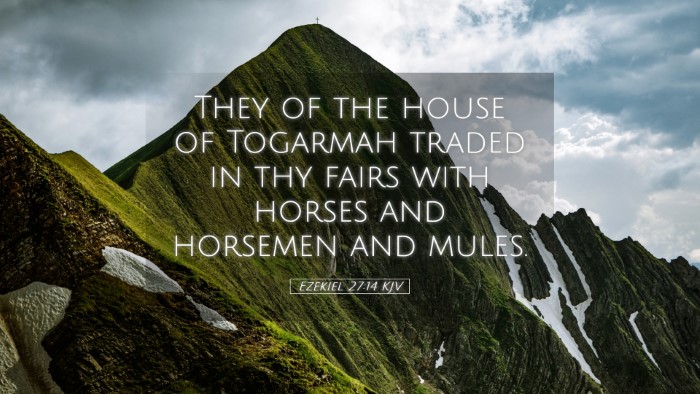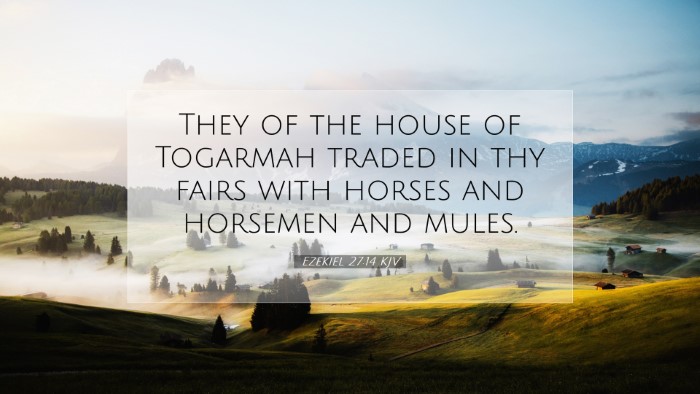Ezekiel 27:14 - Commentary Overview
Ezekiel 27:14 states: "They of the house of Tyre, which brought wine from Lebanon, and fir trees from the wood." This verse occurs within the broader context of a lamentation for Tyre, a potent symbol of wealth, trade, and eventual downfall, used by the prophet Ezekiel to illustrate God’s judgment and the impermanence of worldly riches.
Contextual Analysis
The chapter describes the magnificence of Tyre, its extensive trade network, and the many nations it affected. The mention of wine and fir trees specifically signifies both luxury and the essential commodities that fueled Tyrean commerce.
Historical Significance
Tyre was strategically located on the Mediterranean Sea, facilitating maritime trade and commerce. Its wealth attracted attention and envy, leading to prophecies about its ultimate destruction.
Commentary Insights
Matthew Henry’s Perspective
Matthew Henry emphasizes the symbolism of Tyre representing worldly pride and commercial prosperity. Henry remarks on how the importation of wine symbolizes both joy and festivity, indicating the indulgence of the Tyreian lifestyle. Moreover, the fir trees signify strength and stability, which would ultimately be mockingly contrasted with their impending doom.
Albert Barnes’ Interpretation
Albert Barnes notes the significance of Lebanon’s contribution to Tyre, emphasizing the abundance of natural resources available to Tyre. Barnes elucidates that the “fir trees from the wood” represent materials used for shipbuilding, and their connection to Tyre’s naval strength—and thus its power. He posits this verse illustrates how external resources contributed to the rise of Tyre, which parallels a spiritual lesson on dependency on foreign influences rather than trusting in God's provision.
Adam Clarke’s Exegesis
Adam Clarke expands on the cultural implications of imports into Tyre, noting how Lebanon was renowned for its majestic cedars, indicating high quality and value. Clarke argues that this verse continues the theme of Tyre’s splendor and emphasized luxury. He further explains how the exportation of wine from Lebanon to Tyre was not just a trade but celebrated links between nations and their cultures, and highlights God’s call for repentance amidst impending judgment.
Key Themes and Lessons
- The Fragility of Power: Ezekiel’s lament for Tyre illustrates the inevitable decline of nations reliant on human strength and resources.
- Dependence on God: The downfall serves as a reminder for present-day believers about the importance of placing trust in God rather than material wealth.
- The Impact of Commerce: The verse evokes reflection on how trade and commerce can lead to cultural exchanges and partnerships, but it must be balanced with righteousness.
- Symbolism of Wine and Fir Trees: Both have spiritual analogs: wine representing joy found in Christ, while fir trees remind us of stability rooted in God's promises.
Conclusion
Ezekiel 27:14 serves as a crucial component in understanding the prophetic narrative of Tyre, providing insights into the nature of trade, prosperity, and divine judgment. The combination of insights from Matthew Henry, Albert Barnes, and Adam Clarke invites pastors, students, theologians, and scholars to delve into the deeper meanings of prosperity, reliance on God, and the ultimate fate of nations that turn away from divine guidance.


